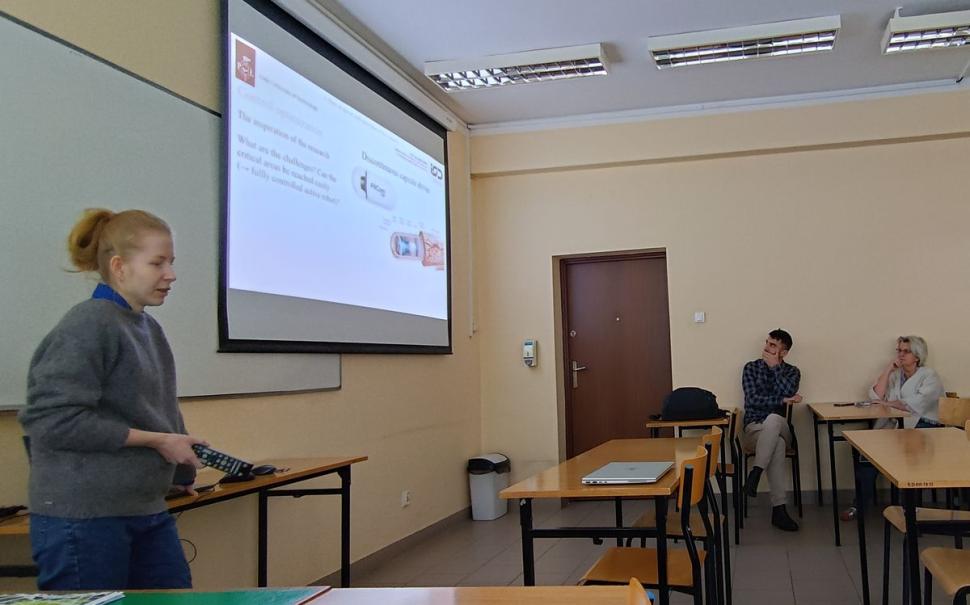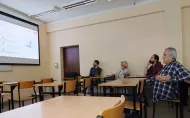Numerical method of constrained control optimization for discontinuous systems based on Fourier series
Zapraszamy na seminarium doktorskie mgr inź. Sandry Zarychty, które odbędzie się w dniu 7 lutego 2025 o godz. 12:00 w sali 221 budynku A22 na Wydziale Mechanicznym.
Tytuł: Numerical method of constrained control optimization for discontinuous systems based on Fourier series
Abstract
Capsubots are capsule devices designed to move in hard-to-reach environments. A particularly interesting group of them are mechanisms driven by the movement of an internal mechanical oscillator. In such a system, the inertial forces generated by the interaction between the vibrating mass and the main body, together with dry friction (present between the capsule and the surface), enable the movement of the entire device without external drive parts. This feature
makes capsubots promising in engineering, pipeline inspection and medicine, especially as an alternative to endoscopy. However, despite technological progress, effectively reaching critical areas of the intestines using such devices remains a challenge. It is therefore necessary to develop fully controllable capsubots with an effective control strategy, taking into account operating costs (e.g. minimum energy consumption) and real-world constraints (e.g. maximum engine torque). Unfortunately, classical approaches to control optimization are insufficient, among others due to the complexity of calculations and discontinuity of the system.
In response to these challenges, a novel Fourier series-based control optimization method for discontinuous systems was proposed in the doctoral dissertation. It transforms the control function optimization problem into a nonlinear programming problem, where a finite number of terms of the series are optimized. Unlike existing methods, the shape of the control function is not assumed a priori, but is optimized as part of the process.
The proposed control optimization method was applied to various mechanisms, including an inverted pendulum-driven capsule (periodic excitation optimization). In the first stage, an open-loop control was developed, demonstrating the flexibility and simplicity of the algorithm in solving optimization problems for discontinuous systems, requiring minimal information about the control object. Then, a closed-loop control using a neural network was implemented, which improved the robustness to the friction coefficient variation. The next step was an iterative approach, which eliminated the limitations of open control and ensured that the quality of solutions did not deteriorate with the increase of the number of harmonics in the optimization process. The experimental validation confirmed the effectiveness of the algorithm using the designed prototype. The results showed high agreement between the experiment and the numerical simulation, and the robustness of the method to disturbances during the device motion.
The doctoral thesis showed that the developed algorithm is both simple and easy to implement, effectively solving the optimal control problem in non-smooth and discontinuous mechanical systems. Moreover, the proposed control optimization method shows high potential to significantly improve the performance of such systems, in particular capsubots, opening new possibilities in classical mechanics and control theory.

